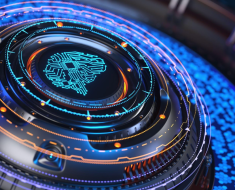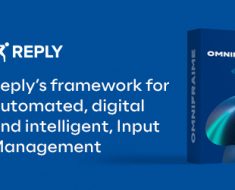@inproceedings{yin-etal-2023-large,
title = "Do Large Language Models Know What They Don{'}t Know?",
author = "Yin, Zhangyue and
Sun, Qiushi and
Guo, Qipeng and
Wu, Jiawen and
Qiu, Xipeng and
Huang, Xuanjing",
editor = "Rogers, Anna and
Boyd-Graber, Jordan and
Okazaki, Naoaki",
booktitle = "Findings of the Association for Computational Linguistics: ACL 2023",
month = jul,
year = "2023",
address = "Toronto, Canada",
publisher = "Association for Computational Linguistics",
url = "https://aclanthology.org/2023.findings-acl.551",
doi = "10.18653/v1/2023.findings-acl.551",
pages = "8653--8665",
abstract = "Large language models (LLMs) have a wealth of knowledge that allows them to excel in various Natural Language Processing (NLP) tasks. Current research focuses on enhancing their performance within their existing knowledge. Despite their vast knowledge, LLMs are still limited by the amount of information they can accommodate and comprehend. Therefore, the ability to understand their own limitations on the unknows, referred to as self-knowledge, is of paramount importance. This study aims to evaluate LLMs{'} self-knowledge by assessing their ability to identify unanswerable or unknowable questions. We introduce an automated methodology to detect uncertainty in the responses of these models, providing a novel measure of their self-knowledge. We further introduce a unique dataset, SelfAware, consisting of unanswerable questions from five diverse categories and their answerable counterparts. Our extensive analysis, involving 20 LLMs including GPT-3, InstructGPT, and LLaMA, discovering an intrinsic capacity for self-knowledge within these models. Moreover, we demonstrate that in-context learning and instruction tuning can further enhance this self-knowledge. Despite this promising insight, our findings also highlight a considerable gap between the capabilities of these models and human proficiency in recognizing the limits of their knowledge.",
}
<?xml version="1.0" encoding="UTF-8"?>
<modsCollection xmlns="http://www.loc.gov/mods/v3">
<mods ID="yin-etal-2023-large">
<titleInfo>
<title>Do Large Language Models Know What They Don’t Know?</title>
</titleInfo>
<name type="personal">
<namePart type="given">Zhangyue</namePart>
<namePart type="family">Yin</namePart>
<role>
<roleTerm authority="marcrelator" type="text">author</roleTerm>
</role>
</name>
<name type="personal">
<namePart type="given">Qiushi</namePart>
<namePart type="family">Sun</namePart>
<role>
<roleTerm authority="marcrelator" type="text">author</roleTerm>
</role>
</name>
<name type="personal">
<namePart type="given">Qipeng</namePart>
<namePart type="family">Guo</namePart>
<role>
<roleTerm authority="marcrelator" type="text">author</roleTerm>
</role>
</name>
<name type="personal">
<namePart type="given">Jiawen</namePart>
<namePart type="family">Wu</namePart>
<role>
<roleTerm authority="marcrelator" type="text">author</roleTerm>
</role>
</name>
<name type="personal">
<namePart type="given">Xipeng</namePart>
<namePart type="family">Qiu</namePart>
<role>
<roleTerm authority="marcrelator" type="text">author</roleTerm>
</role>
</name>
<name type="personal">
<namePart type="given">Xuanjing</namePart>
<namePart type="family">Huang</namePart>
<role>
<roleTerm authority="marcrelator" type="text">author</roleTerm>
</role>
</name>
<originInfo>
<dateIssued>2023-07</dateIssued>
</originInfo>
<typeOfResource>text</typeOfResource>
<relatedItem type="host">
<titleInfo>
<title>Findings of the Association for Computational Linguistics: ACL 2023</title>
</titleInfo>
<name type="personal">
<namePart type="given">Anna</namePart>
<namePart type="family">Rogers</namePart>
<role>
<roleTerm authority="marcrelator" type="text">editor</roleTerm>
</role>
</name>
<name type="personal">
<namePart type="given">Jordan</namePart>
<namePart type="family">Boyd-Graber</namePart>
<role>
<roleTerm authority="marcrelator" type="text">editor</roleTerm>
</role>
</name>
<name type="personal">
<namePart type="given">Naoaki</namePart>
<namePart type="family">Okazaki</namePart>
<role>
<roleTerm authority="marcrelator" type="text">editor</roleTerm>
</role>
</name>
<originInfo>
<publisher>Association for Computational Linguistics</publisher>
<place>
<placeTerm type="text">Toronto, Canada</placeTerm>
</place>
</originInfo>
<genre authority="marcgt">conference publication</genre>
</relatedItem>
<abstract>Large language models (LLMs) have a wealth of knowledge that allows them to excel in various Natural Language Processing (NLP) tasks. Current research focuses on enhancing their performance within their existing knowledge. Despite their vast knowledge, LLMs are still limited by the amount of information they can accommodate and comprehend. Therefore, the ability to understand their own limitations on the unknows, referred to as self-knowledge, is of paramount importance. This study aims to evaluate LLMs’ self-knowledge by assessing their ability to identify unanswerable or unknowable questions. We introduce an automated methodology to detect uncertainty in the responses of these models, providing a novel measure of their self-knowledge. We further introduce a unique dataset, SelfAware, consisting of unanswerable questions from five diverse categories and their answerable counterparts. Our extensive analysis, involving 20 LLMs including GPT-3, InstructGPT, and LLaMA, discovering an intrinsic capacity for self-knowledge within these models. Moreover, we demonstrate that in-context learning and instruction tuning can further enhance this self-knowledge. Despite this promising insight, our findings also highlight a considerable gap between the capabilities of these models and human proficiency in recognizing the limits of their knowledge.</abstract>
<identifier type="citekey">yin-etal-2023-large</identifier>
<identifier type="doi">10.18653/v1/2023.findings-acl.551</identifier>
<location>
<url>https://aclanthology.org/2023.findings-acl.551</url>
</location>
<part>
<date>2023-07</date>
<extent unit="page">
<start>8653</start>
<end>8665</end>
</extent>
</part>
</mods>
</modsCollection>
%0 Conference Proceedings %T Do Large Language Models Know What They Don’t Know? %A Yin, Zhangyue %A Sun, Qiushi %A Guo, Qipeng %A Wu, Jiawen %A Qiu, Xipeng %A Huang, Xuanjing %Y Rogers, Anna %Y Boyd-Graber, Jordan %Y Okazaki, Naoaki %S Findings of the Association for Computational Linguistics: ACL 2023 %D 2023 %8 July %I Association for Computational Linguistics %C Toronto, Canada %F yin-etal-2023-large %X Large language models (LLMs) have a wealth of knowledge that allows them to excel in various Natural Language Processing (NLP) tasks. Current research focuses on enhancing their performance within their existing knowledge. Despite their vast knowledge, LLMs are still limited by the amount of information they can accommodate and comprehend. Therefore, the ability to understand their own limitations on the unknows, referred to as self-knowledge, is of paramount importance. This study aims to evaluate LLMs’ self-knowledge by assessing their ability to identify unanswerable or unknowable questions. We introduce an automated methodology to detect uncertainty in the responses of these models, providing a novel measure of their self-knowledge. We further introduce a unique dataset, SelfAware, consisting of unanswerable questions from five diverse categories and their answerable counterparts. Our extensive analysis, involving 20 LLMs including GPT-3, InstructGPT, and LLaMA, discovering an intrinsic capacity for self-knowledge within these models. Moreover, we demonstrate that in-context learning and instruction tuning can further enhance this self-knowledge. Despite this promising insight, our findings also highlight a considerable gap between the capabilities of these models and human proficiency in recognizing the limits of their knowledge. %R 10.18653/v1/2023.findings-acl.551 %U https://aclanthology.org/2023.findings-acl.551 %U https://doi.org/10.18653/v1/2023.findings-acl.551 %P 8653-8665
Markdown (Informal)
[Do Large Language Models Know What They Don’t Know?](https://aclanthology.org/2023.findings-acl.551) (Yin et al., Findings 2023)
ACL
- Zhangyue Yin, Qiushi Sun, Qipeng Guo, Jiawen Wu, Xipeng Qiu, and Xuanjing Huang. 2023. Do Large Language Models Know What They Don’t Know?. In Findings of the Association for Computational Linguistics: ACL 2023, pages 8653–8665, Toronto, Canada. Association for Computational Linguistics.




